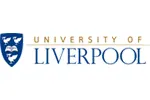We're moving! This site will be relocating to goingto.university in 2026. Please update your bookmarks to the new address.


the United Kingdom
University of Liverpool| The award | How you will study | Study duration | Course start | Domestic course fees | International course fees |
|---|---|---|---|---|---|
| MA | Full-time | 1 year | September | GBP 5135 per year | GBP 11862 per year |
| MA | Part-time | 2 years | September | GBP 2568 per year | - |
Our MA in International Slavery Studies is one of the few programmes in the world to offer students the chance to study forced labour and slavery in a wide variety of past and present contexts. Your seminars, research and tutorials will range broadly, challenging you to analyse historical forms of slavery, to critique modern responses to human trafficking, to evaluate the legacies and memorialisation of slavery in contemporary society, and to apply critical and literary theories to surviving representations of slavery.
Drawing expertise from researchers across the University of Liverpool, students will benefit from our unique relationship with the International Slavery Museum. You will work with the Museum’s staff to study the commemoration and memorialisation of slavery, while the broader MA programme is a flagship activity for the Centre for the Study of International Slavery – a successful venture between the Museum and the University. As members of the Centre, students will meet the international cast of visitors who speak in our seminar series, presenting cutting edge research for criticism and debate.
Probing “slavery” as a category of cultural, legal, political and social analysis, students will confront the realities of un-free labour and asserted human ownership in ancient, modern and contemporary societies. However, there is plenty of potential to specialise in the areas and approaches that grab your interest. Besides the four modules concerning slavery, students will select their disciplinary training modules from a wide variety offered by historians, political scientists, literary scholars and other specialists, enabling you to select the right training for your own interests and aspirations.
All teaching takes place in small-group workshops, seminars and tutorials. Assessment tests students’ abilities through research essays, oral presentations and a 15,000 word dissertation, which is intended to be an original work of scholarship and research.
The course will appeal to you whether you want to develop the skills to work in a range of research careers, within the NGO, public and private sectors, to develop your experience in museum, political or campaigning work, or prepare for further academic research with a PhD. The distinctive choice of disciplinary training modules from across those offered in University departments provides the ideal opportunity for students to change direction from their undergraduate specialism or further their existing strengths. In approaching the topic of slavery and forced labour through a comparative, multidisciplinary perspective, this programme provides both variety and the opportunity to specialise in students’ chosen areas.
Why study International Slavery at Liverpool?Students study two 30-credit core modules and four 15-credit research training modules, culminating in a 60-credit dissertation.
Below are some suggested courses at other providers that you may also be interested in:
Japan Studies Bachelor of International Liberal Arts
International College of Liberal Arts (iCLA) at Yamanashi Gakuin University
Find out moreIf you do not meet the entry requirements for this course then consider one of these postgraduate preparation courses from another institution:
International Development (Urban Development) Graduate Diploma
University of Birmingham
Find out moreThere are 424 other courses listed from University of Liverpool. A selection of these are displayed below:
Advanced Chemical Sciences (Nanoscale with Interfacial Science) MRes, MSc
University of Liverpool
Find out moreAdvanced Chemical Sciences (Nanoscale with Materials Chemistry) MRes, MSc
University of Liverpool
Find out moreAdvanced Chemical Sciences (Organic and Biomolecular Chemistry) MRes, MSc
University of Liverpool
Find out moreAdvanced Chemical Sciences (Organic Chemistry with Catalysis) MRes, MSc
University of Liverpool
Find out moreJoin the StudyLink email list and never miss a chance to turn your study abroad dreams into reality!
